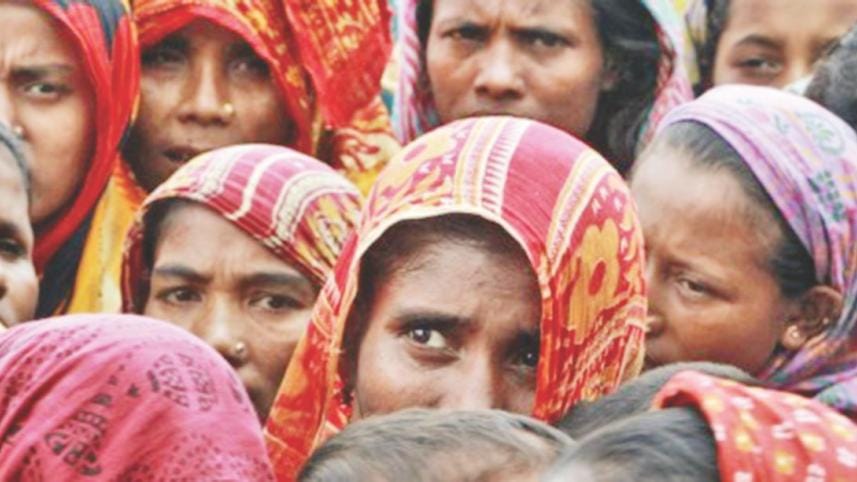Rights of underprivileged women

The judicial system is a powerful tool at the heart of women's rights enforcement, along with the lawyers that fight for the rights of their clients. However, in Bangladesh where 32% of the people are below the poverty line, and where legal retainer fees are too high even for the middle class, hundreds and thousands of poor women are excluded from the protection of the laws. Since there is little to no pro-bono legal assistance provided in Bangladesh, only legal aid lawyers are making access to courts possible for impoverished women.
In doing so, these lawyers are in effect allowing the stories and voices of their marginalised female clients to be heard, and their problems to be highlighted in the courts and to the public. These women are the victims not only of gender based violence and discrimination but also class and wealth discrimination. Their voices and these stories would be otherwise ignored and drowned out.
The Bangladeshi Ministry for Women and Children's Affairs ( “Ministry”) states that “Violence against women in Bangladesh has largely been aggravated by certain socio-cultural factors such as lack of gender equality, lack of awareness and knowledge about rights, poverty, low educational level, women's position in the family and cultural taboos regarding violence and rape.” As representatives of one of the most vulnerable and under-represented groups in Bangladesh, legal aid lawyers hold a unique position of trust and influence with the client and the Court, and can affect the socio-cultural factors stated above by the Ministry.
Legal aid services to survivors of VAWG are dispensed mostly through organisations that retain enlisted lawyers to provide legal assistance to those who cannot afford legal fees. The lawyers typically handle matters of spousal support, dower, divorce or separation. A majority of these cases involve abuse and violence and the clients are survivors of one or another form of VAWG. These underpaid and underappreciated lawyers are in fact at the forefront of the access to justice movement, and are true human rights lawyers.
Legal aid lawyers must tailor their services to the client, to meet the huge responsibility that has befallen them. This includes communicating with their clients. The Ministry stated that lack of awareness among women regarding their own rights is a factor in the widespread violence against women. “Well known risk factors of violence and sexual assaults are prevalent in Bangladesh, among others illiteracy, poverty and lack of education. Very few women are aware of their rights”. This is especially the case with poor women. Therefore it is essential that when legal aid lawyers knowledgeable about the laws protecting the rights of poor women are in a position to share that information with them, they do so.
Taking legal action can in itself be empowering experience for the client, in that she is being pro-active and attempting to use the legal system to obtain what is legally hers. This is particularly the case when the lawyer engages the client in the process and she is able to make informed decisions regarding her rights. Being involved in the legal process allows the client to realise that there are laws that protect her, that she is deserving of protection. While those with money and power feel entitled to these protections, the ultra-poor Bangladeshis do not feel this, particularly women, and particularly women trapped within social acceptance of violence against women.
Engaging in the legal system can be an enormous opportunity for education and personal development for another wise marginalized client and her family. A lawyer who involves a legal aid client rather than alienating her, can have the profound impact of educating and enlightening the client and others in her life. Allowing the client to be part of a legal process makes the client aware of the laws, the institutions and the socio-political processes.
Knowing one's rights is the first real step to empowerment, and an empowered and informed citizenry is the foundation of a strong democracy. When these lawyers utilise their potential and position to make social change, they can start making significant and sustainable contributions toward the status of women, an inclusive democracy and the betterment of Bangladesh's developing society.
The writer is Juris Doctor and Attorney at Law, California, USA.



 For all latest news, follow The Daily Star's Google News channel.
For all latest news, follow The Daily Star's Google News channel.
Comments